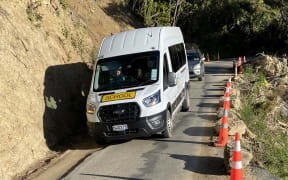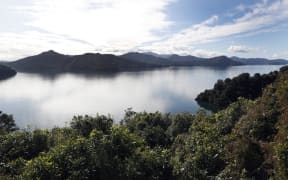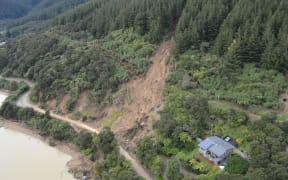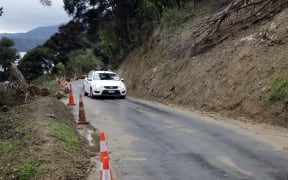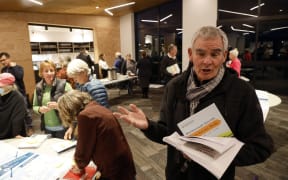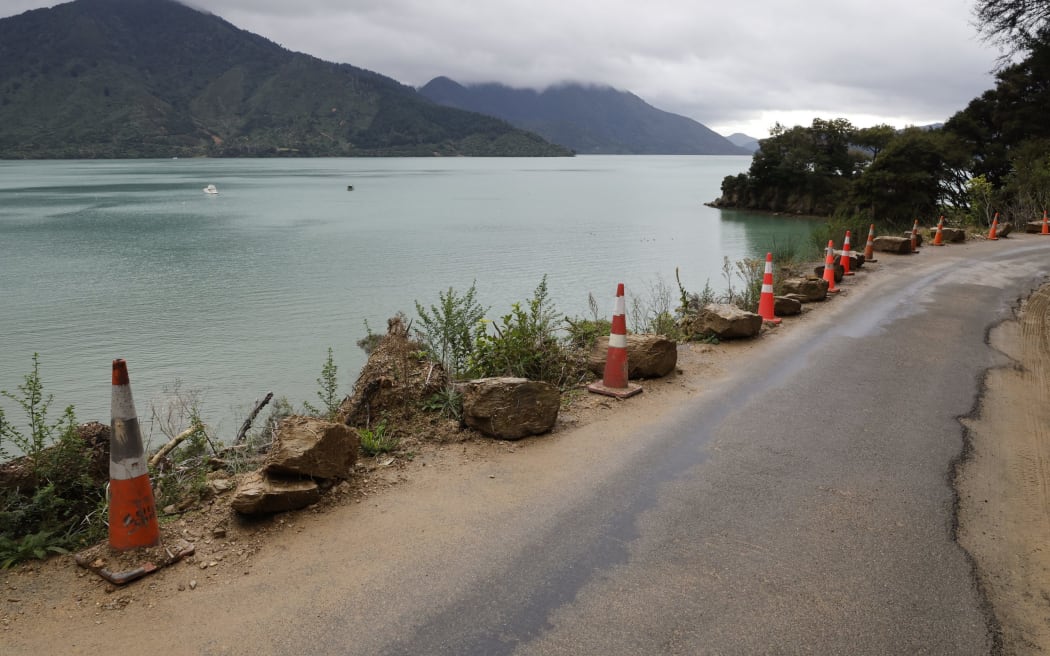
Moetapu Bay Rd, off Kenepuru Rd, is down to one lane in parts. Photo: LDR / Stuff / Anthony Phelps
More than half the responses to a survey on the future of Marlborough's roads say Sounds homeowners should pay more for Sounds repairs than other residents.
It leaves the council in a tricky position as it considers how it should divvy up the cost of repairs.

Marlborough mayor Nadine Taylor said it would be one of the most significant conversations the current council would have.
About 1700 people responded to the survey about the "emerging preferred options" for the Marlborough Sounds road repairs.
Of those, 721 lived in the Sounds, 647 lived elsewhere in Marlborough and 107 lived outside Marlborough.
The roads were part of Stantec's Marlborough Sounds Future Access Study, which assessed repair options for the roads damaged during flooding in July 2021 and August 2022.
The council was working on the assumption Waka Kotahi would fund roughly half of the $160 million the repairs were estimated to cost. Ratepayers across the region would cover the rest, which worked out to be $95m after inflation.
That could leave a typical household paying an extra $300 a year for their rates, for 20 years.
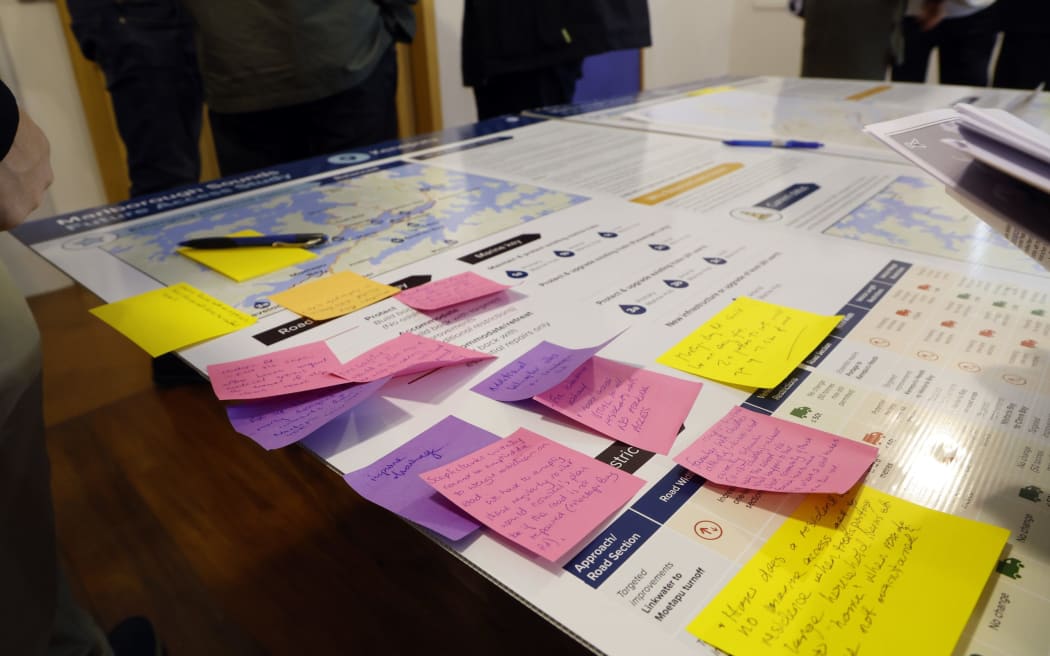
Feedback on the Kenepuru Sound proposal at a Linkwater meeting in June 2023. Photo: LDR / Stuff / Anthony Phelps
Half of the respondents who lived in the Sounds did not want to pay a higher proportion than other households, but more than three-quarters of those from outside the Sounds said people living in the study area should pay more.
Two-thirds of people in the study area who said they were prepared to pay more indicated they would be willing to pay either $250 or $500 more per year.
Meanwhile, two-thirds of those from outside the Sounds said they would not be willing to pay any additional contribution.
"We do need to wait and see what the response is from Waka Kotahi," Taylor said.
"We need to get an indication of what sort of financial assistance that they are going to be able to give ... and we also probably want to have a conversation with the government around any other avenues of funding, for instance, the Climate Adaption Fund.
"Then we are going to have to talk about how we fund our local share."
She said it gave the council a good starting point.
"We will be listening, and we will be using that feedback as we try and frame up the funding options that will go out to the community."
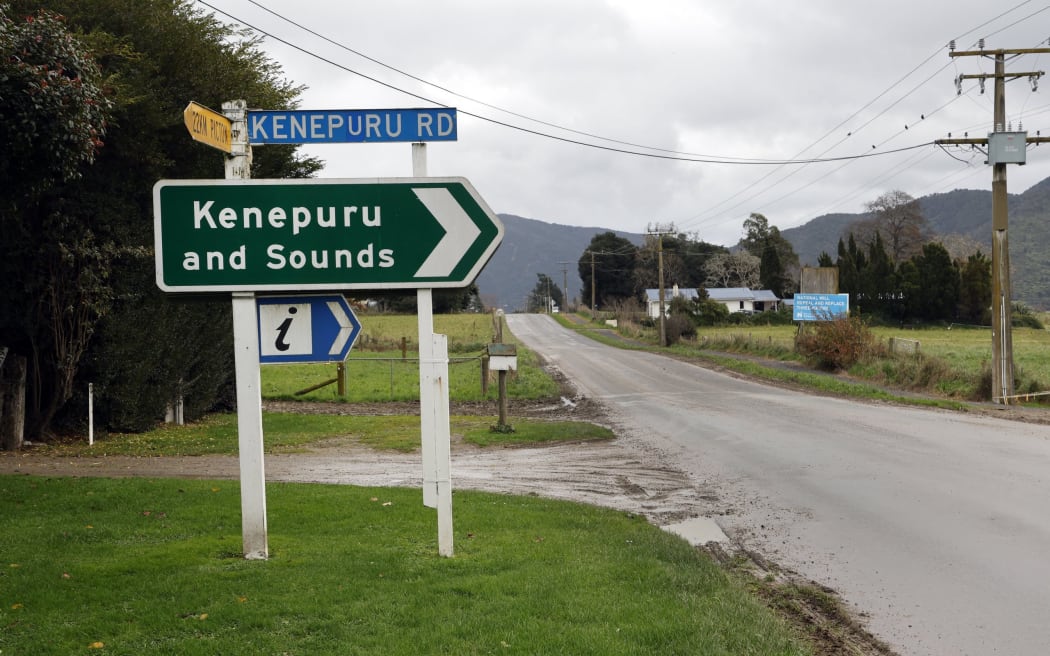
Kenepuru Rd, in the Marlborough Sounds, is a hard fix due to significant underlying geological instability. Photo: LDR / Stuff / Anthony Phelps
In Kenepuru, "significant underlying geological instability" meant its "emerging preferred option" was a "balanced approach". This included investment in both roading and marine infrastructure.
Just 35 percent of respondents either strongly or somewhat supported this approach, and only 26 percent supported or somewhat supported the proposed "hazard adaption pathway" - or investment into marine infrastructure.
Taylor thought there was a level of disappointment in that community, because the council did not land on a "road focussed" or "road access" option like other areas.
"But there are some really good reasons for that, which have been captured in the Stantec report," Taylor said.
The council still needed to consider the finalised business case at an assets and service meeting on October 3.
"The data that we have in front of us is just the outcome of the survey. Stantec still need to take that information away," she said.
"They have to put forward that final recommendation to us, and I haven't seen that yet."
Waka Kotahi would then formally consider the draft business case and provide its initial response. The council would consult all of Marlborough on the proposed solutions, most likely through the long term plan in April to June 2024.
More results:
Rai Valley to Te Aumiti / French Pass: 76 percent of respondents either strongly or somewhat supported the "emerging preferred option" (road access).
Te Hoiere / Pelorus: 46 percent of respondents either strongly or somewhat supported the "emerging preferred option" (road focus).
Queen Charlotte Drive: 77 percent of respondents either strongly or somewhat supported the "emerging preferred option" (road focus).
Te Whanganui / Port Underwood: 62 percent of respondents either strongly or somewhat supported the "emerging preferred option" (road focus).
Local Democracy Reporting is Public Interest Journalism funded through NZ On Air
